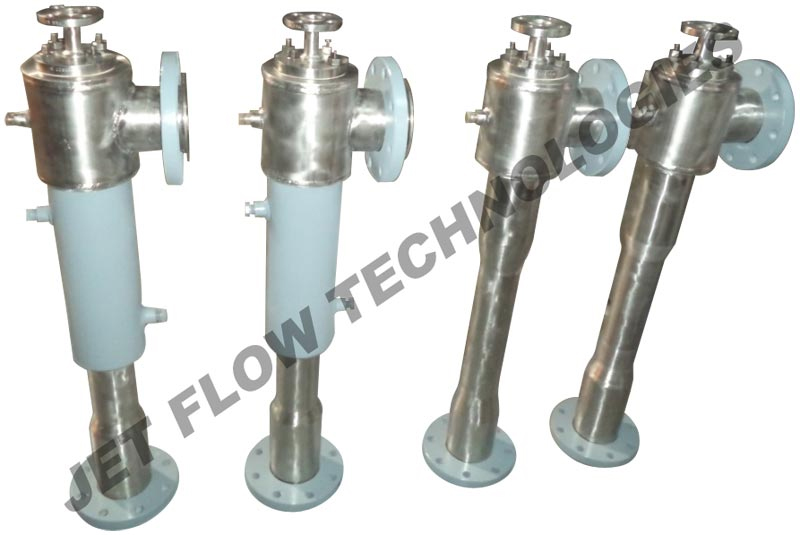
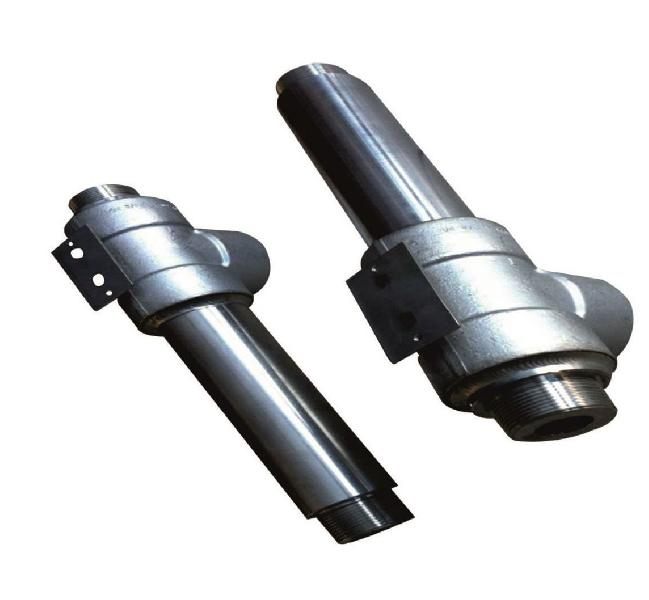
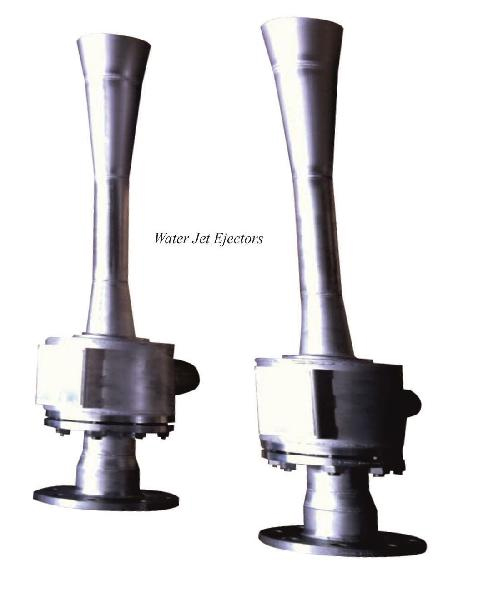
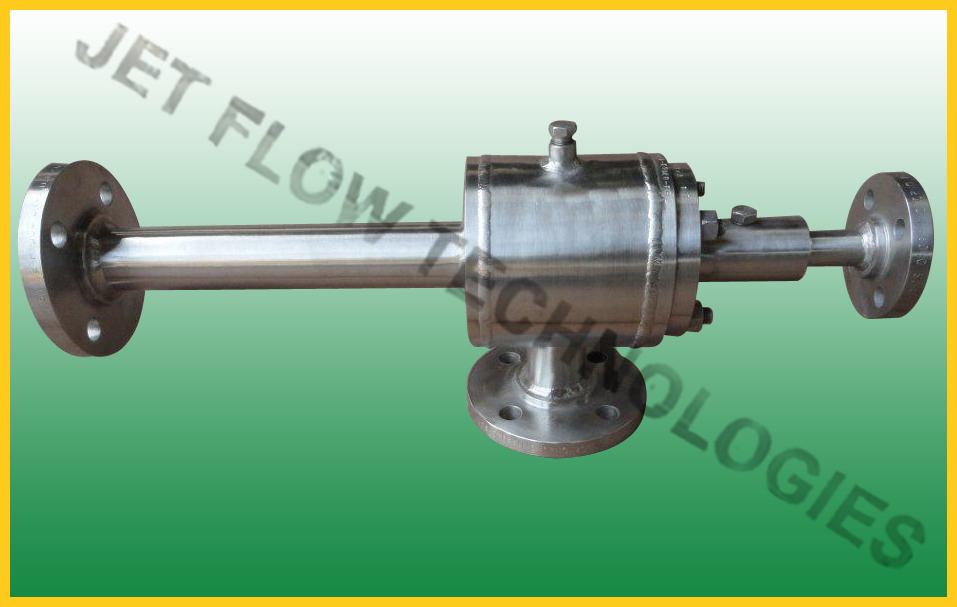
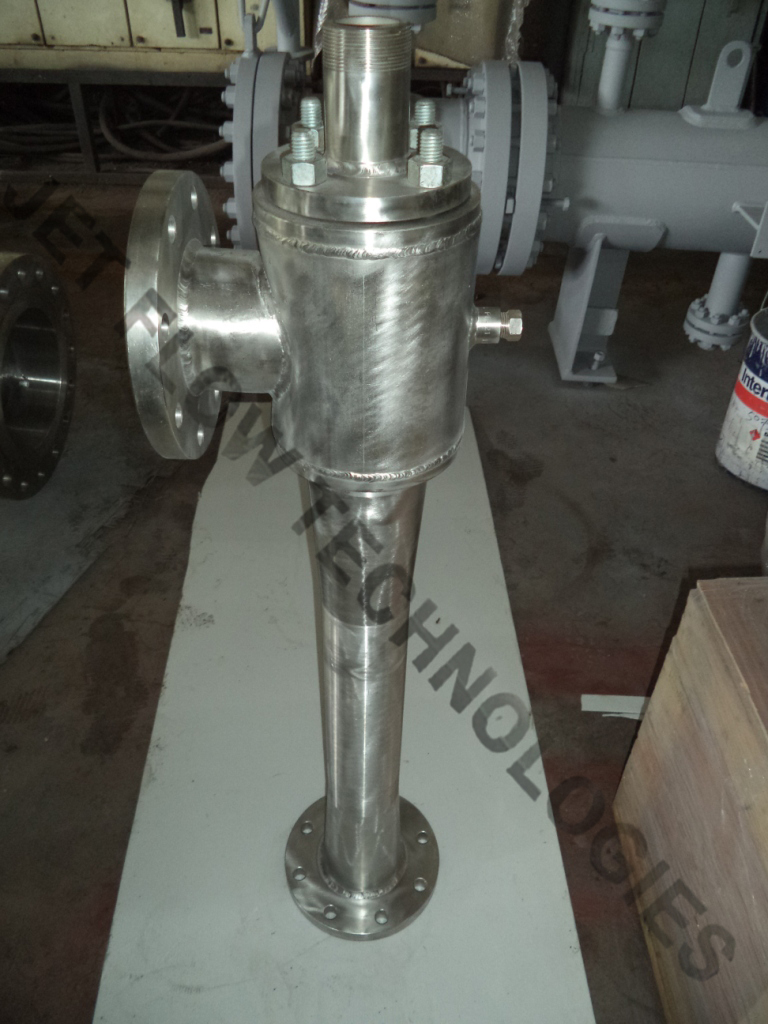
Water Jet Ejector (Liquid Eductor)
Water Jet Ejectors / Eductor :
- Water jet ejector uses water as motive force. Liquid Jet Eductors use the kinetic energy of a motive liquid to entrain another liquid,completely mix the two, and then discharge the mixture against a counter pressure and are used in large numbers throughout industry for pumping and mixing operations.
- Water Jet Eductors consist of three basic components, namely a converging nozzle, a diffuser (or venturi), and a body to hold these parts in their relative positions and to provide a suction (or mixing) chamber. In addition, they can be equipped with accessories such as regulating spindles.
- Water Jet Eductors can also be staged with higher vacuum steam ejectors. In this case, the eductor serves both as the final pumping stage as well as a fairly good direct contact condenser, condensing the motive steam from the high vacuum steam ejectors.
- When designing eductors experience is all-important to correctly design the nozzle, diffuser, and body and their relative positions as they are all highly critical and vary according to the physical properties of the liquids being handled.
- Applications are so numerous, it is impossible to note all of them. General uses include lifting, pumping, mixing, and agitating of liquids as well as handling granular solids and slurries.
Benefits :
- Low Cost - Units are small in relation to the work they do and cost is correspondingly low.
- Self Priming - Eductors are self-priming. They operate equally well in continuous or intermittent service.
- No Moving Parts - Eductors are exceedingly simple and reliabl-e. There are no moving parts to wear or break in a basic eductor. Even when equipped with accessories such as regulating spindles snap valves, float mechanisms, they require little attention, only periodic inspection and maintenance
- Corrosion and Erosion Resistant - Because they can be made of practically any workable material, or coated with corrosion-resistant materials eductors can be made highly resistant to the actions of the liquids handled or The environment in which located.
- Safe - Eductors can be used in hazardous locations where electrically operated alternates would require explosion proofing at considerable cost.
- Versatile - Various piping arrangements permit adapting to environmental conditions. Eductors of vanoustypes can handle granular solids, semi-solids, and slurries without contamination.
- Automatically Controlled - Units can be adapted for automatic control by means of a pressure liquid regulating spindle or a snap-valve and float arrangement.
- Easy to Install - Connections can be made to suit your piping requirements. Little space is required to accommodate units and they are normally so light in weight they can be supported by the piping to which they are attached.